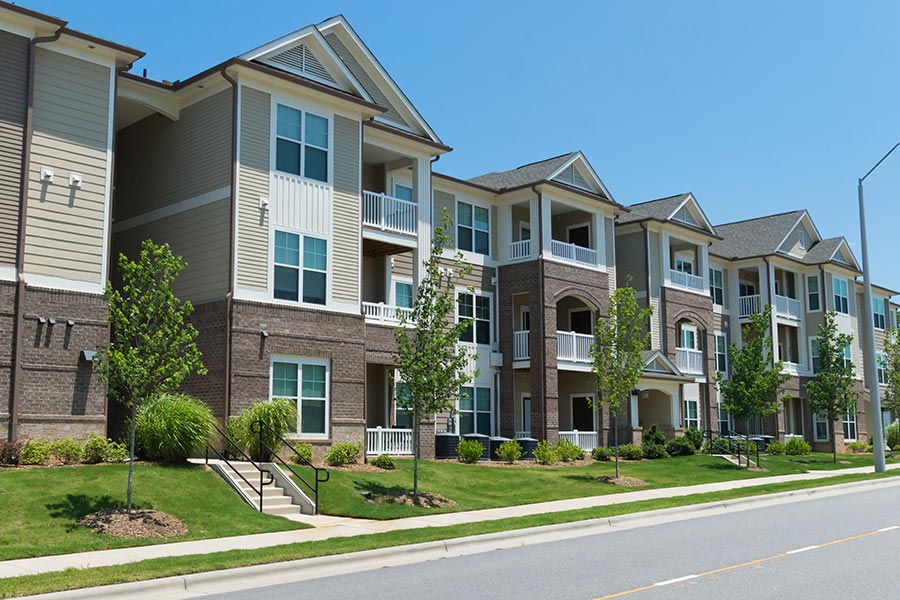Affordable Homeownership: Unlocking the Path to The Dream Home
Affordable Homeownership: Unlocking the Path to The Dream Home
Blog Article
Budget-friendly Homeownership Options for First-Time Homebuyers
As the housing market continues to develop, first-time property buyers face unique challenges in protecting inexpensive homeownership options. These initiatives not only promote homeownership but likewise foster area stability and financial growth.
Government Assistance Programs
Entitlement program programs play an important function in making homeownership attainable for many individuals and family members. These programs intend to minimize the financial problem related to buying a home, particularly for first-time buyers. By supplying financial assistance, gives, and tax incentives, government initiatives aid link the gap between climbing real estate expenses and the purchasing power of potential house owners.
Different programs are offered at the federal, state, and regional degrees. For example, the Federal Real Estate Management (FHA) supplies insurance coverage on car loans, allowing lending institutions to offer much more favorable terms, such as lower down repayments and minimized rates of interest. Additionally, state and city governments frequently have their own campaigns, which might consist of down settlement help programs, buyer education and learning training courses, and positive home mortgage terms.
These programs are made to address the special difficulties encountered by low- to moderate-income family members, including restricted cost savings and credit report. By fostering an atmosphere where homeownership is a lot more easily accessible, entitlement program programs not just support private ambitions yet additionally add to area stability and financial development. Recognizing and making use of these resources can substantially boost the leads of effective homeownership.
Low-Down-Payment Home Loans
For lots of hopeful house owners, low-down-payment home mortgages provide a feasible path to homeownership, particularly in today's tough real estate market. These mortgage choices usually need deposits varying from 3% to 5%, making it less complicated for first-time customers to enter the marketplace without the concern of conserving for a substantial deposit.
Various lending institutions use low-down-payment programs, consisting of standard car loans backed by Fannie Mae and Freddie Mac, as well as government-backed options like FHA financings. These mortgages are created to fit individuals with minimal savings while still giving affordable rates of interest. Notably, they permit purchasers to preserve more money for other vital expenditures, such as relocating expenses, home inspections, and potential improvements.
Nonetheless, prospective home owners ought to bear in mind the compromises related to low-down-payment home loans. A smaller sized deposit might cause higher regular monthly repayments and the requirement of exclusive home loan insurance (PMI), which secures lenders in situation of default. It is critical for first-time customers to carry out comprehensive study and consult with home loan professionals, ensuring they choose a low-down-payment choice that aligns with their lasting economic goals.
First-Time Buyer Grants
Several first-time buyers find that grants can significantly alleviate the financial worry of purchasing a home, complementing low-down-payment home loan choices. These gives, often given by state and regional governments or charitable companies, use financial help that does not call for payment, making them an attractive alternative for those going into the real estate market.
Eligibility for novice homebuyer gives normally depends upon earnings, credit reliability, and the acquisition cost of the home. Several programs are made to aid low- to moderate-income families, making sure that assistance reaches those who require it most. The application procedure frequently includes documents of monetary standing, property buyer education and learning programs, and in click here to find out more some cases even a commitment to remain in the home for a particular duration.
The amount helpful differs extensively, with some gives providing a number of thousand dollars to help cover closing costs or deposits. Investigating offered grants in your area is important, as programs often change and might have particular demands. By leveraging these financial sources, first-time property buyers can make homeownership more accessible, ultimately attaining their desire of having a home while mitigating the first financial strain.
Cutting-edge Area Campaigns
Cutting-edge neighborhood initiatives are playing an important duty in increasing inexpensive homeownership options for locals. These initiatives usually include collective efforts in between regional governments, charitable companies, and exclusive sector stakeholders to produce lasting real estate options tailored to community requirements.
One noteworthy approach is the establishment of neighborhood land counts on (CLTs), which enable citizens to acquire homes while the land remains possessed by the count on. This version helps from this source preserve affordability in time and avoids speculative cost boosts. Furthermore, CLTs frequently offer educational resources and support services to encourage first-time property buyers.
One more reliable effort is the growth of mixed-income real estate tasks, which blend budget friendly units with market-rate homes. This approach fosters comprehensive neighborhoods and lowers the preconception often connected with low-income housing. Local governments are significantly supporting zoning reforms to promote the building of accessory house devices (ADUs), which can provide added rental revenue for property owners while enhancing housing availability.

Tips for Budgeting and Saving

Following, develop a committed cost savings account particularly for your future home acquisition. Objective to conserve a percent of your revenue constantly, ideally 20% or even more, to build a considerable down payment. Use automation tools, such as straight deposit or automated transfers, to make conserving easier and much more constant.
Additionally, consider adopting the 50/30/20 rule: designate 50% of your income to demands, 30% to wants, and 20% to cost savings and financial debt payment - Affordable Homeownership. This method advertises well balanced monetary health and wellness

Conclusion
In recap, inexpensive homeownership choices for newbie property buyers incorporate numerous sources such as federal government help programs, low-down-payment home mortgages, and gives. By leveraging these economic tools, people can browse the intricacies of homeownership, inevitably adding to a much more fair housing landscape.
As the real estate market continues to develop, novice property buyers deal with special challenges in securing economical homeownership options. By fostering an environment check here where homeownership is a lot more easily accessible, government assistance programs not just sustain private desires but likewise contribute to area security and economic development. By leveraging these economic resources, novice property buyers can make homeownership more accessible, inevitably attaining their dream of owning a home while mitigating the initial economic stress.
In recap, cost effective homeownership choices for first-time buyers include various sources such as federal government aid programs, low-down-payment home mortgages, and grants. By leveraging these economic tools, people can navigate the intricacies of homeownership, eventually adding to a much more equitable housing landscape.
Report this page